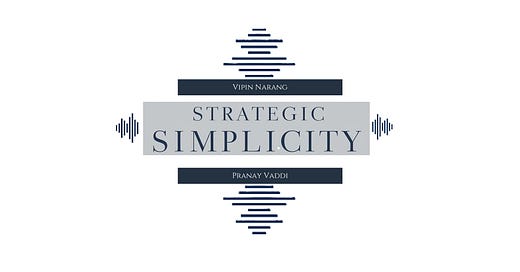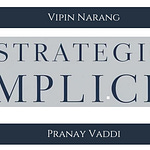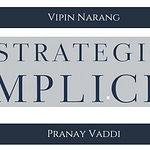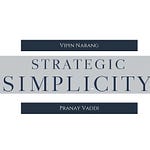A brief outline of the various topics we cover, as we really went all over the map, with timestamps:
3m 30s: A little history on the UK and French nuclear strategies dating back to the Cold War, and interactions with U.S. extended nuclear deterrence.
6m 00s: The absence of limited nuclear options among our nuclear allies in Europe, and the “religion” of escalation management.
14m 00s: The varied challenges of Central Deterrence, Extended Deterrence, and Assurance; the importance of extended nuclear deterrence software and transparency in nuclear strategy for the holder of a nuclear umbrella.
20m 45s: Regional deterrence is hard. Bolstering deterrence in Europe is not just a nuclear problem. The challenge is much harder without credible guarantees, and ideally, the United States works with allies to guide the development of their conventional capabilities to enhance extended deterrence strategy.
26m 05s: The “overmatch problem” - Russian force generation, force posture, and force size.
28m 50s: Our attempt to come up with a constructive idea - develop enough capability to limit damage from Russian intermediate-range capabilities against Europe (what I jokingly referred to as “KMPR for France”).
32m 30s: Vipin links damage limitation to allied assurance and we recap a smart thing Jeffrey and Aaron discussed on ACW (the political importance of INF deployments in the early 1980s).
37m 01s: Reflecting on our experience in the USG dealing with a deteriorating nuclear security environment, this version of Russia, and how Russia could react to potential Euro Deterrent efforts (Vipin talks about damage limitation again, “no zealot like a convert”).
45m 01s: All aboard to support the NPT, an America that is engaged in the world, and the importance of strengthening allied military capabilities to preserve the nonproliferation order (with a mostly self-effacing shout out for MTCR policy reform).
49m 20s: The extremely high risks of deciding to go nuclear, and the “ideal world” of the U.S. and allies working together and paying into a shared extended deterrence concept.
50m 30s: What is the conventional military balance in Europe without the United States?
52m 00s: Plugging the MIT Center for Nuclear Security Policy, thank yous, and sign off.
Recent publications by friends and fellow nuclear travelers we mentioned during our discussion, which listeners should review:
Ankit Panda, “France, UK must heed the call of Europe’s new nuclear age.”
Rebeccah Heinrichs and Yashar Parsie, “Nonproliferation in Great Power Competition.”
Jon Wolfsthal, “Don’t Let American Allies Go Nuclear.”
James Cameron, “Eurodeterrent: A Vision for an Anglo-French Nuclear Force.”
Jeffrey Lewis and Aaron Stein (Arms Control Wonk podcast), “Tusk Muses About France’s Force de Frappe.”
Ankit Panda, Vipin Narang, and Pranay Vaddi, “Nuclear Proliferation Will Haunt ‘America First’.”
Alexander Sorg, “Force De L’Europe: How Realistic is a French Nuclear Umbrella.”
Robert Peters, “Extended Deterrence: A Tool That Has Served American Interests Since 1945.”
Shashank Joshi, “The War Room newsletter: The fraying nuclear umbrella.”
Mark S. Bell and Fabian Hoffman, “Europe’s Nuclear Trilemma.”

















Share this post